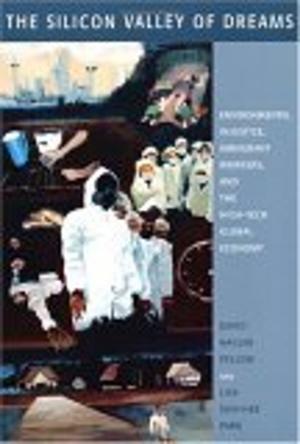| Author: | David J. Hess | ISBN: | 9780814773239 |
| Publisher: | NYU Press | Publication: | October 1, 1997 |
| Imprint: | NYU Press | Language: | English |
| Author: | David J. Hess |
| ISBN: | 9780814773239 |
| Publisher: | NYU Press |
| Publication: | October 1, 1997 |
| Imprint: | NYU Press |
| Language: | English |
Thrust into the public eye by the contentious "Science Wars"--played out most recently by physicist Alan Sokal's hoax--the nascent field of science studies takes on the political, historical, and cultural dimensions of technology and the sciences.
Science Studies is the first comprehensive survey of the field, combining a concise overview of key concepts with an original and integrated framework. In the process of bringing disparate fields together under one tent, David J. Hess realizes the full promise of science studies, long uncomfortably squeezed into traditional disciplines. He provides a clear discussion of the issues and misunderstandings that have arisen in these interdisciplinary conversations. His survey is up-to-date and includes recent developments in philosophy, sociology, anthropology, history, cultural studies, and feminist studies.
By moving from the discipline-bound blinders of a sociology, history, philosophy, or anthropology of science to a transdisciplinary field, science studies, Hess argues, will be able to provide crucial conceptual tools for public discussions about the role of science and technology in a democratic society.
Thrust into the public eye by the contentious "Science Wars"--played out most recently by physicist Alan Sokal's hoax--the nascent field of science studies takes on the political, historical, and cultural dimensions of technology and the sciences.
Science Studies is the first comprehensive survey of the field, combining a concise overview of key concepts with an original and integrated framework. In the process of bringing disparate fields together under one tent, David J. Hess realizes the full promise of science studies, long uncomfortably squeezed into traditional disciplines. He provides a clear discussion of the issues and misunderstandings that have arisen in these interdisciplinary conversations. His survey is up-to-date and includes recent developments in philosophy, sociology, anthropology, history, cultural studies, and feminist studies.
By moving from the discipline-bound blinders of a sociology, history, philosophy, or anthropology of science to a transdisciplinary field, science studies, Hess argues, will be able to provide crucial conceptual tools for public discussions about the role of science and technology in a democratic society.















